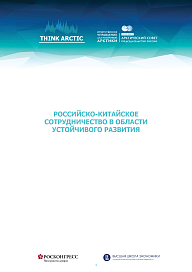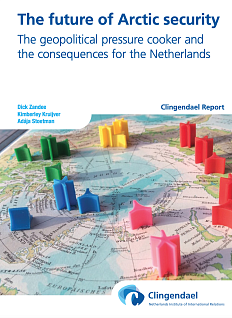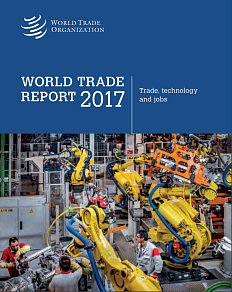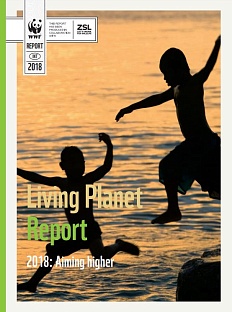The material was prepared as part of the ThinkArctic Project, organized by the Roscongress Foundation, the Center for Comprehensive European and International Studies, and the Analytical Center for the Government of the Russian Federation. ThinkArctic Project will be conducted within the Program of the Russian Chairmanship in the Arctic Council during 2021-2023.
China’s Arctic policy: the main objectives and cooperation mechanisms in the region
Main priorities of Chinese Arctic policy
For a long time, the People’s Republic of China has been interested in the Arctic region and its development. Despite the geographical remoteness to the region, China classifies itself as a state close to the Arctic, «Near-Arctic State» (近北极国家). China’s interest in the development and government of the region is justified primarily by the ongoing climatic changes that have consequences for the PRC as well1. In particular, climate change in the Arctic affects Chinese sectors of the economy, such as agriculture, forestry, and maritime industry.China places emphasis on the importance of the special status of the Arctic that was established by the 1982 United Nations Convention on the Law of the Sea (UNCLOS) and the 1920 Treaty of Spitsbergen. These documents allow a wide range of countries to build up their presence in the Arctic. Against this background, China has developed the idea of viewing the Arctic as an «international space» in which states without territories in the region are also able to participate in its collective management5. In this context China primarily aims to build up the region’s potential as a transport corridor. China has designed, inter alia, a new part of its Maritime Silk Road initiative — the Polar Silk Road, which has been positively received by other Arctic states6.
The main priorities of China’s policy in the Arctic are articulated in the White Paper of 2018, according to which China seeks to 1) understand, 2) protect, 3) develop the region, and 4) participate in its management to ensure the common interests of the international community in the sustainable development of the Arctic.
In addition, China seeks to contribute to preserving the unique ecosystem of the Arctic and saving it from the possible adverse effects of climate change. Another area of China’s interest is protecting the indigenous peoples of the region by preserving their lifestyle and culture. In order to promote the development of the Arctic China intends to strengthen the region’s technological potential through innovation and applied technologies. The PRC will also advance maritime routes and help improve the quality of life of local communities. On the part of the participation in the management of the region, China seeks to promote both multilateral and bilateral mechanisms to establish and maintain an Arctic management system, as well as to ensure security. All of this China strives to accomplish with the respect to the principles of international law, including the UN Convention on the Law of the Sea. The PRC seeks to expand its scientific presence and network of scientific contacts in the region, actively implementing joint research projects with other countries.
Mechanisms and formats of China’s international cooperation in the field of sustainable development in the Arctic region
Since the 2010s, China has become more actively involved in the development of the Arctic region, and it has been particularly cordially involved in multilateral platforms. The main areas of cooperation include scientific activities, biodiversity conservation, combating global climate change, building transport and logistics infrastructure, and oil and gas exploration. Also, the tourism sector is gradually developing. Nevertheless, many Arctic countries are cautiously building cooperation with China on a bilateral basis as they fear excessive economic penetration from China in certain sectors. But in some cases, such as Iceland, China’s presence continues to increase every year.
Russian-Chinese Cooperation in the field of sustainable development of the Arctic region
Russian-Chinese cooperation in the Arctic region covers a wide range of areas, including scientific exchange, tourism, transport and logistics, oil and gas extraction. However, the countries have several differences in their vision of the legal status of the Arctic. China recognizes the rights of the Arctic states to manage the region, as stated in the UN Convention on the Law of the Sea and the Spitsbergen Treaty, but advocates for greater access to resources and opportunities to develop the Arctic for all states, regardless of their territorial position. Russia takes the opposite view, accepting only the division of states into «Arctic» and "non-Arctic"47, which emphasizes the exclusive rights of the Arctic countries to manage the region and limits the possibility of intervention in the region by other states.
Despite a divergence in the positions of Russia and China, cooperation continues and intensifies each year. To strengthen interaction between the states, the Working group on cooperation in the Arctic was established in 2017, which operates on a permanent basis. It holds regular meetings of the parties to discuss opportunities for economic and scientific cooperation between the countries. In 2022, Russia and China signed the Joint Statement on International Relations Entering a New Era and Global Sustainable Development48, which stressed the need to deepen cooperation in the Arctic and joint development of Arctic routes.
Prospects for Russian-Chinese cooperation in the field of sustainable development of the Arctic region
Despite the intense political situation and limited opportunities for multilateral cooperation in the Arctic, Russia stands for continuing the dialogue between countries and institutions in the region. Therefore, there are great opportunities for cooperation between Russia and China in the field of sustainable development of the Arctic region.
Several agreements and memorandums on cooperation in the Arctic between Russia and China have been already established and there is a Russian-Chinese working group on cooperation in the Arctic acting under the Russian-Chinese intergovernmental commission on trade and economic cooperation. Nevertheless, there is a lack of a complete institutional framework which remains a substantial obstacle to strengthening cooperation between the countries. Namely, a framework agreement would outline the main areas of cooperation and tasks for each aspect.Besides, the promotion of Russian-Chinese cooperation in the Arctic requires information support for possible areas of Russian-Chinese partnership in the region, e. g. the creation of an Internet portal in Chinese with up-to-date information on current projects and possible areas for investments.






